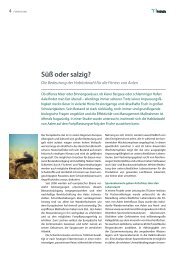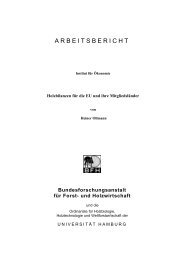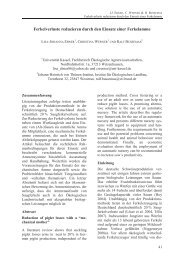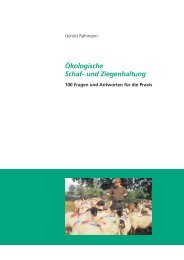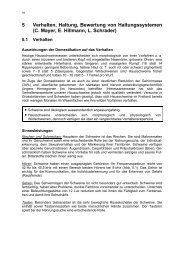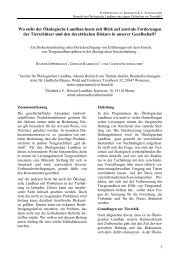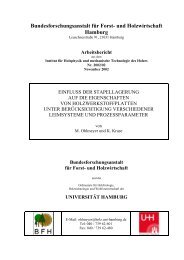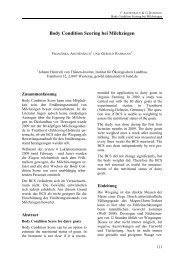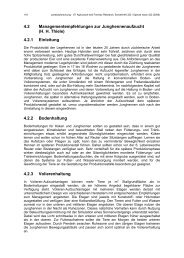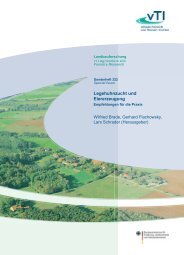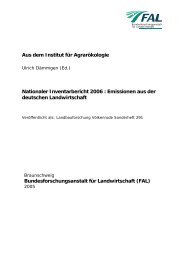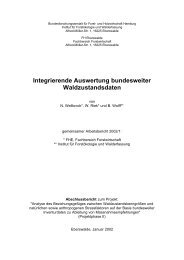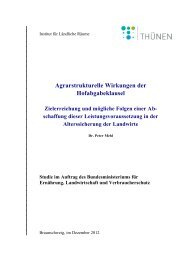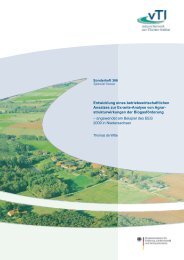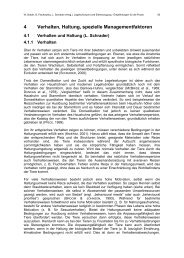Create successful ePaper yourself
Turn your PDF publications into a flip-book with our unique Google optimized e-Paper software.
Un<strong>de</strong>r the auspices of the International Plant Genetic Resources Institute (IPGRI 1998) a project<br />
was realized on “Genetic resources of broadleaved forest tree species in Southeastern Europe” with<br />
participation of Bulgaria, Romania and Moldova. The project investigation on the genetic resources<br />
of Fagus spp. were published in a brochure of Turok et al. (2000).<br />
During the period 1995 – 2009, planned into phases I, II, III of European Forest Genetic Resources<br />
Programme (EUROFGEN), investigations of the economically most important species in Europe<br />
were realized, grouped into 5 networks, Fagus spp. was inclu<strong>de</strong>d sequentially in the following<br />
networks: Social Broadleaves, Temperate Oaks and Beech, Stand-forming Broadleaves. A paper on<br />
the genetic resources of Bulgarian Social Broadleaves including those of European and oriental beech<br />
was published by Alexandrov et al. (1999) in an EUFORGEN edition.<br />
Within the programme <strong>COST</strong> (European Cooperation in the Field of Scientific and Technical<br />
Research) including a project <strong>COST</strong> <strong>Action</strong> E<strong>52</strong> “Evaluation of beech genetic resources for sustainable<br />
forestry” (2006 – 2010) articles on survival, growth and ecophysiology of 49 beech provenances<br />
from 20 European countries were published by Alexandrov, Pan<strong>de</strong>va, Dakov (2006), Velinova,<br />
Nay<strong>de</strong>nova, Dakov (2008, 2010).<br />
The beech genetic resources of the Balkans and in particular of Bulgaria are valuable resource for the<br />
European forestry, especially for the South and Southeast Europe, where they could be used in suitable<br />
sites. The studied provenances at different ecological conditions via the programme <strong>COST</strong> <strong>Action</strong><br />
E-<strong>52</strong> give opportunity for selection of the most suitable ones for the expected climate changes.<br />
reFereNces<br />
Alexandrov A. 1990. Genetics and breeding of forest tree species. Sofia, Zemizdat: 142 p. (in<br />
Bulgarian).<br />
Alexandrov A., Pan<strong>de</strong>va D. 200 . Conservation and utilization of forest genetic resources in<br />
Bulgaria. Comptes rendus <strong>de</strong> l’Aca<strong>de</strong>mie Bulgare <strong>de</strong>s Sciences, 60, 8: 911-916.<br />
Alexandrov A., Pan<strong>de</strong>va D., Dakov A. 2006. Survival and growth of 12 years old European beech<br />
provenances in Tvarditsa Forestry Experimental plantation. Bulgaria, Nauka za gorata, 4: 11-19.<br />
Alexandrov A., Popov E., Genov K., Hinkov G. 1999. Genetics resources of Bulgarian Social<br />
Broadleaves. Social Broadleaves. Rome, EUFORGEN, IPGRI: 41-<strong>52</strong>.<br />
Botev N. 1988. Influence of initial <strong>de</strong>nsity of common beech (Fagus sylvatica L.) plantations on their<br />
growth. PhD Thesis, Sofia (in Bulgarian).<br />
Busov V. B. 1995. Discrimination between the European (Fagus sylvatica L.) and oriental beech<br />
(Fagus orientalis Lipsky) by SDS-PAGE of seed proteins. In: Baradat Ph., Adams W. T., Müller-<br />
Starck G. (eds.): Population Genetics and Genetic Conservation of Forest Trees. Amsterdam SBS<br />
Publ.: 1- .<br />
Dakov A. 2010. Variability and breeding of Fagus sylvatica L. in Central Balkan Range. PhD Thesis<br />
(manuscript). Sofia (in Bulgarian).<br />
6



